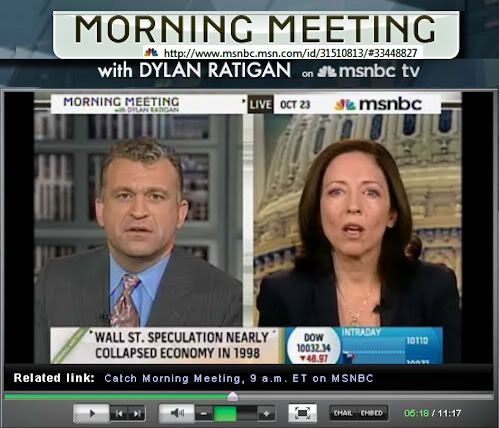Dude, where’s my money?
There’s a scathing report in Vanity Fair right now about how all that TARP money was just thrown into the world with all the responsibility of someone shoveling it out the bank of an armored car while driving down a busy highway.
In other words, nobody knows where the money went. Any of it. There was no accountability, no rules for keeping track of it, heck, the banks didn’t have to do anything but take it, like lotto winnings, and do whatever the hell they wanted with it.
This whole crime is going right down the Memory Hole, which is right where the banksters, the guys who “run the place” to quote a few Congresspeople, want it to be.
But once the money left the building, the government lost all track of it. The Treasury Department knew where it had sent the money, but nothing about what was done with it. Did the money aid the recovery? Was it spent for the purposes Congress intended? Did it save banks from collapse? Paulson’s Treasury Department had no idea, and didn’t seem to care. It never required the banks to explain what they did with this unprecedented infusion of capital.
You can bet a lot of it was used for embezzlement “bonuses”, I mean, why not? If someone gives you a few billion dollars and doesn’t care what you do with it, why not put it in your own little Swiss bank account?
Exactly one year has elapsed since the onset of the financial crisis and the passage of the bailout bill. Some measure of scrutiny and control has since been imposed by the Obama administration, but even today it’s hard to walk back the cat and trace the money. Up to a point, though, it’s possible to reconstruct some of what happened in the first chaotic and crucial three months of the bailout, when Treasury was still in the hands of Henry Paulson and most of the money was disbursed. Needless to say, there is no central clearinghouse for information about the tarp money. To get details of any kind means starting with the hundreds of individual recipients, then poring over S.E.C. filings, annual reports, and other documentation-in other words, performing the standard due diligence that the government itself failed to perform. In the report that follows, we have no more than dipped a toe into the morass, but one fact emerges clearly: a lot of the money wound up in the coffers of some very surprising institutions- institutions that should have been seen as “troubling” as much as “troubled.”
I don’t really have time tonight to do much more than this, but I wanted to pass this along. We certainly shouldn’t forget about this, not that it will matter with the Obama administration “putting corporations first” and the American people dead last. They’re sure never gonna do crap about anything, especially this, and especially since Obama put his full 1000% support behind this crime anyway.
Oh well.
Meanwhile, millions more foreclosures are on their way. But wait, didn’t the TARP money have something to do with mortgages? Naaaahhhh, it was all about giving it to bankers, pure theft to fatten those cats. The rest of us are left to melt down, even though the whole lie idea behind the bailout was to help out with the whole mortgage crash, right?
Pardon me while I puke.




